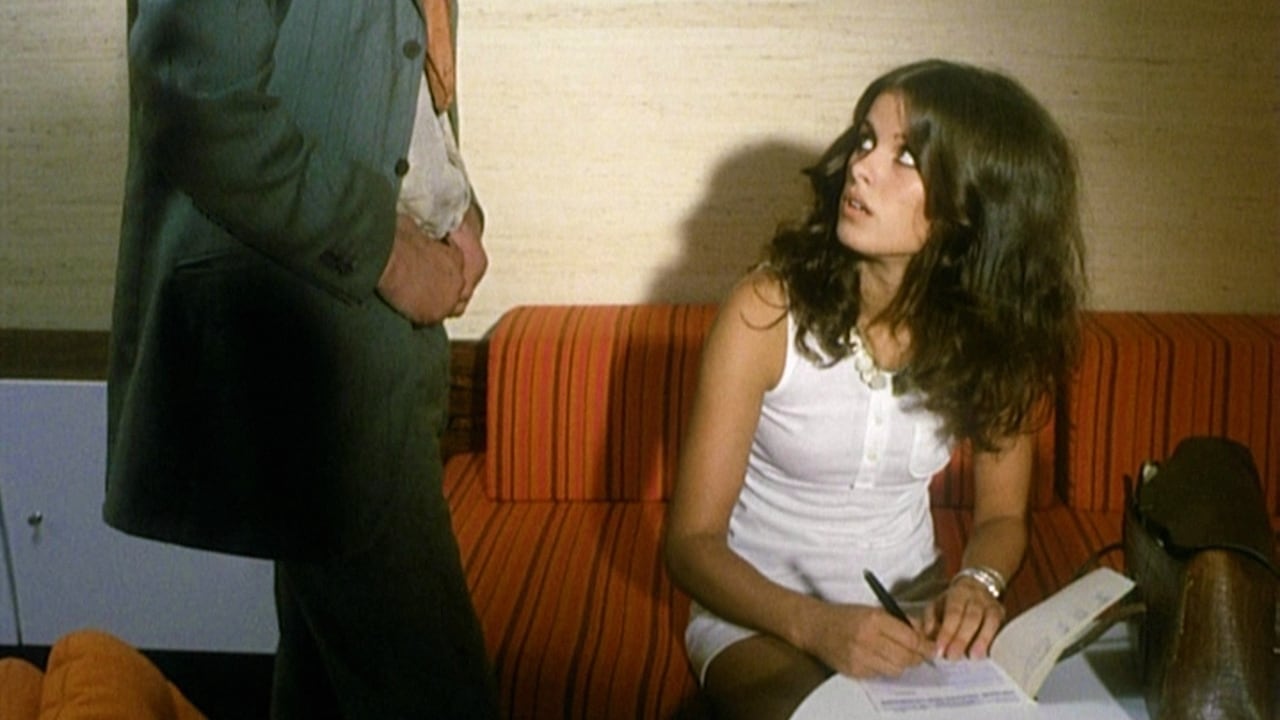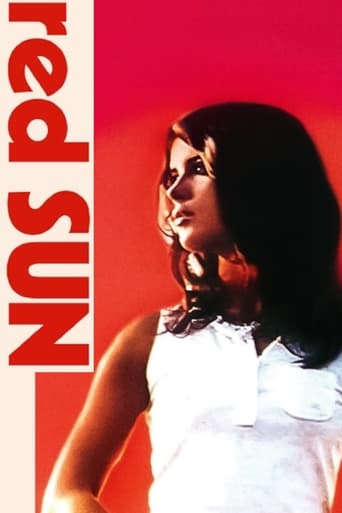



Dreadfully Boring
A Major Disappointment
In truth, there is barely enough story here to make a film.
View MoreThis is a dark and sometimes deeply uncomfortable drama
View More"Rote Sonne" or "Red Sun" is a West German German-language film from 1970. It runs for slightly under 90 minutes and was directed by Rudolf Thome and written by Max Zihlmann. For both, it is probably among their more known career achievements. The cast really does not include many known names at all, but German film buffs may have heard of Uschi Obermaier, Marquard Bohm and Hark Bohm already. With Obermaier in it, you also know immediately the direction the film is heading I am sure, namely a story that relies a lot on sex appeal rather than quality acting or writing. And this not only refers to her, but also to Sylvia Kekulé who I personally found much more appealing (hot redhead!) than the baby-faced Obermaier, even if she was obviously the female protagonist in here and it's probably Obermaier's most known work as an actress.This is the story of a radical group of women who hate men and kill them quickly after being with them for a couple days in order to prevent themselves from falling in love with them. Oh yeah, that's the story? Sounds bad? It is. Really only the looks of the actresses and the performance by Marquard Bohm make it somewhat bearable to watch and keep it from being a total failure. But the story never makes any sense at all. First of all, the women commit horrible crimes, not just to men who cheat on them, but also to some men who are possibly really nice. How could you like them or cheer for them? It's impossible really. I wanted to cheer for the police catching them, but there is no police at all in this film. The women kill in broad daylight with everybody seeing them, but nothing in terms of police or legal consequences ever happens to them. Extremely unrealistic film. They obviously tried to make an emotional statement with the final shooting scene, especially if you look at who dies and the moral resulting from it, but this also went wrong. it felt extremely hammy how the two were shooting at each other and it almost made me forget about the occasionally decent stuff from Bohm on some earlier occasions in the film. At the very end, Obermaier dragged him down to her level and lets be honest. I would call her pretty attractive and a starlet, but I would not call her an actress, and especially not an actress good enough to carry this film as a lead performer. Watch something else instead. The sun went down really quickly for this one.
View MoreThere's a long, stringent thread in German art movie tradition: the much-heralded "social relevance" almost always serves as an excuse for brainless ennui. Rudolf Thome's Rote Sonne, enthusiastically hailed in 1970 by Wim Wenders as the future of the so-called Autorenfilm, makes no difference. Slurring slacker Marquard Bohm moves like a grubby sleepwalker through the spartanly furnished rooms of a flat in Munich his girlfriend (astoundingly bland: Uschi Obermaier, anyway good enough for Jimi Hendrix when he was totally doped in 1968) shares with three other gals out to pick a bloody bone with dudes. Unfortunately the hausfrauen fatales never take action; instead, you get witless blather without end, certainly no story – we're in a German movie here, already forgotten? –, zero erotic ambiance, the monotonous repetition of Albinoni's Adagio in C minor, and the zombie-esque performances of the participants that Wenders tried to sell with the following: "The actors are just boldly present in the scenes, talking and acting as if they do not know what's next ..." Well observed, Wim! The shootout at Lake Starnberg – noticeably an homage to Vidor's Duel in the Sun – might be the most amateurish piece of crap Jesús Franco never dared to put in front of a lens, but an even bigger letdown are the 4.99 Deutsche Mark H&M synthetic skirts of the overwhelmingly unsexy chicks. Before you object: The Swedish clothing retailer was founded in 1947.
View MoreThis is a dated movie that you have to take in its historical context. A bunch of free-wheeling hippie girls share a flat, a carefree attitude to sex, and a shocking disregard for the physical integrity of their big-spending boyfriends, whom they have communally decided to off after a few days of TLC. This attitude of breaking with conventions, political ideology, availability and excessive violence describes the Zeitgeist of the late 1960ies and early 1970ies very accurately.The balance is offset when an old boyfriend arrives on the scene. As he describes himself bluntly: "I've got this washed-out charme that's irresistible". He is a memorable and unique character, a freeloader, strangely hideous like a Mick Jagger stand-in and immature, and still captivating. When gang leader Peggy (played surprisingly well by the iconic Uschi Obermaier, who was actually more of a "media personality" than an actress) hesitates to comply with the group's five-day-rule she offsets the carefully balanced group dynamics. The movie finishes with a memorable showdown on beautiful lake Starnberg: "Are you hit?" -- "Just in the lung. No biggie." ("Du, nur'n kleiner Lungendurchschuss.")The movie could have been better if there had been a few, homeopathically dosed scenes of ultragraphic violence. And as much as I liked the Thomas character (the movie is worth seeing for him alone), actor Marquard Bohm slurs his lines really badly.But those are minor grievances, Rote Sonne is a bold, outstanding dystopic movie.
View MoreThis movie is very funny indeed. Maybe it's an attempt at film noir with feministic background that has gone terribly wrong. Maybe the comic elements have been intended. Maybe it's a political statement with nods to Godard. The plot depicts a group of young woman that decide to kill their boyfriends if they insist on a relationship lasting longer than five days. Actually it's pretty entertaining, although all characters are talking and acting in a VERY weird way, resulting in some german reference books calling it a science fiction-movie set in the future, although there are no hints in the plot that justify such an assumption. Anyway, the guy who wrote the dialogue MUST have been on drugs: "If the condition to change society is a change of the weather, then we have to change the weather. This is not impossible." You get the idea, although this may have been a very bad translation.
View More